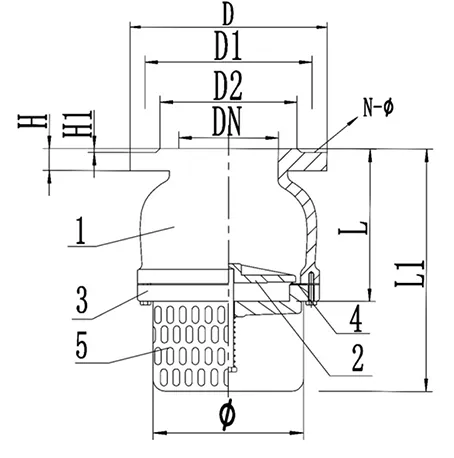11 月 . 02, 2024 07:27 Back to list
gate valve actuator
Understanding Gate Valve Actuators Key Components and Functions
Gate valves are critical components in various industrial applications, designed to control the flow of liquids and gases. The efficiency and reliability of these valves largely depend on their actuators. Here, we will explore the essentials of gate valve actuators, how they work, and their significance in modern automation systems.
What is a Gate Valve Actuator?
A gate valve actuator is a mechanical device used to operate a gate valve. Unlike other types of valves that control flow through throttling, gate valves are designed to provide a straight-line flow with minimal resistance when fully opened. Actuators are responsible for moving the valve from its closed position to an open position and vice versa.
There are several types of actuators used for gate valves, including manual, electric, pneumatic, and hydraulic actuators. The choice of actuator depends on the specific application, the environment in which the valve operates, and the desired level of control.
Types of Gate Valve Actuators
1. Manual Actuators Manual actuators, such as handwheels or lever mechanisms, require human intervention for operation. These are suitable for smaller valves or situations where automation is not necessary.
2. Electric Actuators Electric actuators use electric motors to move the gate valve. They offer precise control and can be easily integrated into automated systems. Electric actuators are suitable for applications requiring frequent operation and precise positioning.
3. Pneumatic Actuators Utilizing compressed air, pneumatic actuators are ideal for environments where speed is critical. They are capable of rapid opening and closing cycles, making them suitable for applications in the oil and gas industry or chemical processing.
gate valve actuator

4. Hydraulic Actuators These actuators use hydraulic fluid to exert force on the valve. They are particularly beneficial for large valves that require significant force to operate. Hydraulic actuators provide a powerful solution for applications involving high pressures and flow rates.
Key Features and Advantages
Gate valve actuators enhance the functionality of valves through several key features
- Remote Control Many modern actuators can be operated remotely, improving safety and convenience, especially in hazardous environments.
- Automation Electric and pneumatic actuators are often integrated into automated control systems, allowing for better monitoring and regulation of fluid flow in processes.
- Precision Actuators enable precise control of valve position, which is crucial for applications that demand specific flow rates and pressures.
- Reliability High-quality actuators are designed to withstand harsh conditions and provide reliable performance over extended periods.
Conclusion
Gate valve actuators are vital in ensuring the smooth operation of gate valves in various industries, from oil and gas to water treatment. The selection of the right actuator type is crucial in meeting the specific needs of an application. As industries continue to evolve with automation and digital control systems, understanding the role of gate valve actuators will remain essential for engineers and operators alike. Investing in the right actuator not only enhances operational efficiency but also ensures safety and reliability in fluid control processes.
Share
-
Understanding the Differences Between Wafer Type Butterfly Valve and Lugged Butterfly ValveNewsOct.25,2024
-
The Efficiency of Wafer Type Butterfly Valve and Lugged Butterfly ValveNewsOct.25,2024
-
The Ultimate Guide to Industrial Swing Check Valve: Performance, Installation, and MaintenanceNewsOct.25,2024
-
Superior Performance with Industrial Swing Check Valve: The Essential Valve for Any SystemNewsOct.25,2024
-
Industrial Swing Check Valve: The Ideal Solution for Flow ControlNewsOct.25,2024
-
You Need to Know About Industrial Swing Check Valve: Functionality, Scope, and PerformanceNewsOct.25,2024